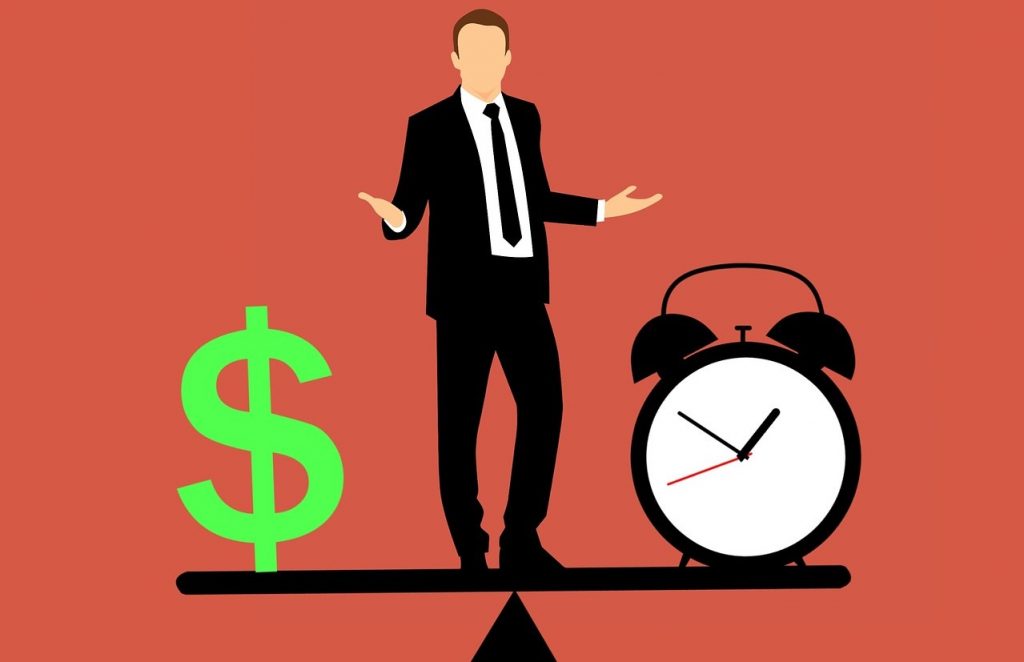How To Achieve Work-Life Balance As A Freelancer In Just 7 Ways
Discover effective strategies for freelancers to achieve a healthy work-life balance in this comprehensive guide. Learn about setting realistic goals, establishing a productive routine, the importance of regular breaks, and effective communication with clients.
Author:Emmanuella SheaReviewer:Camilo WoodJan 02, 2024337 Shares18.7K Views

Are you having trouble balancing fun and work? Achieving work-life balanceas a freelancer is a complex but essential task for sustained success and personal well-being. The nature of freelance work often blurs the lines between professional and personal life, making it imperative for freelancers to implement effective strategies to strike a harmonious equilibrium.
This article delves into practical approaches that freelancers can adopt to maintain a healthy balance between their career and personal life, ultimately leading to reduced stress, enhanced health, and increased productivity. But let's first define what work-life balance is and why it's so important.
What Is Work-Life Balance And Why It's Important
Work-life balance is the delicate equilibrium where an individual successfully juggles the demands of their career with those of their personal life. Freelancers face a unique challenge in this regard, as the lack of traditional work hours and a defined workspace can lead to a constant overlap between work and personal time.
A well-maintained balance results in reduced stress levels, improved physical and mental health and heightened overall productivity.
1. Setting Realistic Goals And Boundaries
One of the foundational steps towards achieving work-life balance as a freelancer is setting realistic goals and establishing firm boundaries. This involves defining clear work hours and adhering to them rigorously, learning to decline excessive work to avoid burnout, and resisting the temptation to overcommit to projects. Freelancers can leverage digital tools such as calendars and task management apps to keep track of commitments, deadlines, and workloads.
For example, if a freelancer typically works from 9 a.m. to 5 p.m., they can use a digital calendar to schedule breaks, set project deadlines, and allocate time for personal activities. By having a visual representation of their schedule, freelancers can manage their time more efficiently and avoid overextending themselves.
2. Establishing A Routine
A consistent routine brings structure to the freelancer's otherwise flexible workdays. Regular work hours, planned breaks, and dedicated time for exercise or hobbies are crucial components of a healthy routine. This structure aids in maintaining focus, increasing efficiency, and reducing the feeling of being overwhelmed.
For instance, a freelancer can create a daily routine that starts with morning work hours, includes designated break times, and ends with a defined period for relaxation or personal activities. Having a routine helps freelancers manage their time effectively and promotes a sense of stability in their work and personal lives.
3. Taking Regular Breaks
Freelancers often find themselves engrossed in their work for extended periods. However, taking regular breaks is essential for both mental and physical well-being. The Pomodoro Technique is a popular method that involves working for a concentrated period, typically 25 minutes, followed by a short break. This approach helps maintain focus and prevent burnout.
During breaks, freelancers can engage in activities unrelated to work, such as taking a short walk, practicing mindfulness exercises, or simply stepping away from the workspace. These activities refresh the mind, improve concentration, and contribute to overall well-being.
4. Communicating Availability
Effective communication with clients is a cornerstone of successful freelancing. Setting clear expectations from the beginning of a project and keeping clients informed about progress and availability are critical. Freelancers should utilize professional communication tools, maintain transparency, and be proactive in addressing potential issues that may affect deadlines or deliverables.
For example, a freelancer can establish a communication protocol at the project outset, including regular update emails, scheduled check-ins, or the use of collaboration platforms. By maintaining open lines of communication, freelancers can manage client expectations and avoid misunderstandings that could impact their work-life balance.
5. Prioritizing Self-Care
Self-care is paramount for freelancers, encompassing physical health, mental well-being, and emotional care. Regular exercise, a balanced diet, mindfulness practices, and adequate sleep are fundamental components of self-care that contribute to overall health and sustained productivity.
Freelancers should consciously prioritize self-care by incorporating activities like daily walks, exercise routines, and moments of relaxation into their schedules. Additionally, practicing mindfulness techniques such as meditation or deep breathing exercises can help manage stress and enhance mental clarity.
6. Creating A Dedicated Workspace
Having a dedicated workspace is essential for freelancers looking to mentally separate work from personal life. This space should be designed for productivity and free from distractions.
Investing in ergonomic furniture, organizing the workspace, and minimizing interruptions contribute significantly to work efficiency and mental focus.
For instance, freelancers can set up a dedicated home office with comfortable furniture, proper lighting, and minimal clutter. This designated workspace helps create a professional atmosphere, signaling the start and end of the workday and reducing the temptation to blur the boundaries between work and personal life.
7. Taking Time Off
Freelancers often neglect the importance of taking time off, assuming that the flexibility of their work allows them to be constantly available. However, regular vacations or short breaks are essential for preventing burnout, rejuvenating creativity, and maintaining overall mental health.
Freelancers can plan vacations in advance, block off specific periods for personal time, and communicate these plans with clients well in advance. Even a day off to pursue hobbies, spend time with loved ones, or simply recharge can have a significant positive impact on mental well-being and long-term productivity.
Work-Life Balance FAQs
How Can I Effectively Set Boundaries Between Work And Personal Life As A Freelancer?
Freelancers can establish clear boundaries by defining specific work hours, designating a dedicated workspace, and communicating availability to clients. Creating a routine and sticking to it helps in maintaining a structured balance, ensuring that personal time is respected.
What Role Does Routine Play In Achieving Work-life Balance?
Having a consistent routine brings structure to a freelancer's day, reducing the unpredictability of freelance work. Regular work hours, planned breaks, and dedicated time for personal activities contribute to a sense of stability, aiding in focus and efficiency.
How Do Regular Breaks Impact My Productivity And Well-being?
Regular breaks, such as using the Pomodoro Technique, are crucial for mental and physical well-being. They prevent burnout, maintain focus, and allow freelancers to engage in activities unrelated to work during these breaks, promoting overall well-being.
What Communication Strategies Can Help Manage Client Expectations Regarding My Availability?
Effective communication involves setting clear expectations from the start of a project, using professional communication tools, and maintaining transparency about progress and availability. Establishing a communication protocol, including regular updates, check-ins, and collaboration platforms, helps manage client expectations.
Is Taking Time Off As A Freelancer Important, And How Can I Ensure A Smooth Workflow During My Absence?
Taking time off is essential for preventing burnout and maintaining mental health. Freelancers can plan vacations in advance, communicate their plans to clients, and delegate tasks or plan project timelines accordingly to ensure a smooth workflow during their absence.
How Can Self-care Practices Positively Impact My Freelance Career?
Prioritizing self-care, including physical health, mental well-being, and emotional care, directly influences productivity and success. Activities such as regular exercise, a balanced diet, mindfulness practices, and sufficient sleep contribute to overall health and sustained creativity.
Can Creating A Dedicated Workspace At Home Truly Make A Difference?
Establishing a dedicated workspace at home significantly impacts the mental separation between work and personal life. It creates a professional atmosphere, minimizes distractions, and contributes to work efficiency and mental clarity.
How Do I Handle The Temptation To Overcommit To Projects?
Setting realistic goals, learning to say 'no' to excessive work, and avoiding overcommitment is crucial. Freelancers can use digital tools to track commitments and workloads, ensuring a manageable workload and preventing burnout.
Is Achieving Work-life Balance A One-time Task Or An Ongoing Process?
Work-life balance is an ongoing process that demands constant attention and adjustment. Implementing effective strategies, such as those mentioned in this article, ensures a continuous journey toward maintaining a healthy balance.
What Are The Long-term Benefits Of Maintaining Work-life Balance As A Freelancer?
Long-term benefits include reduced stress, improved physical and mental health, increased productivity, and sustained career success. Freelancers who prioritize work-life balance enjoy the flexibility of their career choice while leading fulfilling and sustainable professional and personal lives.
Conclusion
In conclusion, achieving work-life balance as a freelancer is an ongoing process that requires deliberate effort and constant adjustment. By implementing the practical strategies outlined in this article, freelancers can navigate the challenges of their chosen career path while safeguarding their health and personal well-being.
Remember, maintaining a balance between work and life is not a one-time task but a continuous journey that demands attention, care, and a commitment to self-prioritization. Embracing these strategies will empower freelancers to enjoy the flexibility of their career choices while leading fulfilling and sustainable professional and personal lives.

Emmanuella Shea
Author

Camilo Wood
Reviewer
Latest Articles
Popular Articles


